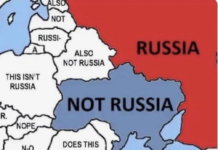In my early years working for the Association of Salaried Medical Specialists I received wise advice from a very experienced (now retired) Hutt Valley paediatrician Dr Archie Kerr.
He opined that he would much rather be an underpaid paediatrician than an overpaid secretary. This succinct pearl of wisdom has remained prominent in my consciousness ever since.
What Dr Kerr was saying was that by having less secretarial staff than required to ensure an efficient and effective paediatric service, he was having to spend too much of his time filling the secretarial vacuum. Consequently he was left struggling to have sufficient time to spent diagnosing and treating children.

Occupational independency
When thinking about those working in our district health board (DHB) public hospitals most people think of doctors and nurses. Some might also think of the many lower profile and less numerous allied health professionals such as physiotherapists, occupational therapists, scientists, laboratory technicians and psychologists. They might also think of (although not sighted) senior managers.
But few will know of and therefore appreciate those involved in non-clinical work. They work in both DHB or hospital-wide roles and within clinical departments and services. However, they are often not seen by patients.
Non-clinical workers include those working in IT, clerical and administration, ward clerking, transporting patients in vehicles or around the hospital (orderlies), patient coding, procurement, payroll, finance, cleaning, catering and the boilers (boilermakers proved to be indispensable to keeping Christchurch Hospital going immediately after the massive 2011 earthquake).
Being generally unsighted by patients and their families, their contribution is often not appreciated. But it is greatly appreciated by the health professionals who depend on them.
This is because public hospitals are highly integrated and complex organisations employing a huge variety of occupations. Occupational interdependency is a defining feature of our hospitals. The clinical are dependent on the non-clinical.
From devaluing to demonisation
Unfortunately the relative invisibility of this non-clinical workforce lends itself to being devalued (less so by the health professionals and clinical service managers who depend on them). Unfortunately, owing to political opportunism, they are also vulnerable to demonisation.

When he was National’s health spokesperson (2005-08) one of his campaigning slogans was ‘from back office to frontline’. His elaboration that too much was spent on management and much of this funding should be transferred to the frontline. Ryall disingenuously branded non-clinical staff as management.
After becoming health minister in late 2008 Ryall introduced an arbitrary cap on the employment of the so-called ‘back office’ that lasted for a little longer than his six years in the portfolio.
It introduced an unnecessary and inflexible constraint on DHBs by ignoring the considerable variety of essential functions performed by non-clinical staff and how integral they were to the work of those working at the clinical frontline.
As well as disrupting the functioning of the clinical frontline, Ryall’s cap devalued the important roles of these non-clinical workers for several years. In fact, it was worse than this. I recall a current DHB chief executive describing it as demonising and bullying a valued workforce.
Sadly, even after the cap was subsequently discontinued this demonisation and bullying led to the devaluing of non-clinical employees becoming an ongoing legacy for both this workforce and the health system.
What about now
While the cap on non-clinical staff is now long gone, problems still remain due to the continued underfunding of DHBs by successive governments. This was highlighted by the Otago Daily Times in an 8 February article on the need for more administrative support for clinical staff in Dunedin Hospital’s emergency department:
Clinical leader calls for more administrative staff in emergency department
This call follows recent close scrutiny of the quality of patient care in the hospital with the release of two Health & Disability Commissioner reports into separate 2019 patient deaths. Both recommended that prosecution over against Southern DHB these deaths be considered. Among the quality of care concerns raised was clinical auditing.
The emergency department’s clinical director Dr Richard Stephenson has advised that while only 30% of people who arrived at ED were admitted into the hospital (the rest were able to be discharged), they tended to be older and have more complex health needs. Consequently it took time to record those details; more time than they are currently resourced for.

Dr Stephenson identified the need for more administrative support for health professionals working on quality improvement including clinical auditing. He also identified improving patient flow for patients requiring transfer from ED into a hospital ward as an important activity for which more administrative support would help.
Value (and loss) of transparency
This is experience is not confined to Dunedin Hospital’s emergency department. Several other clinical services in Dunedin Hospital and the other Southern DHB hospitals face shortages of non-clinical staff.
Further, this is not just a Southern DHB experience. Similar experiences can be found in many clinical services in all the other 19 DHBs in the country which are also riddled with shortages.
What is different about this experience is that the clinical director raised the concerns at Southern DHB’s hospital advisory committee which was open to the public and attended by a diligent ODT journalist.
This is the type of transparency that will be lost when our public health system becomes much more centrally bureaucratised through the abolition of DHBs and their replacement with a new national bureaucratic structure, Health New Zealand, in July.
Transparency is a prerequisite for accountability. It is difficult not to believe that this loss of transparency is an intended rather than unintended consequence of government decison-making.
Ian Powell was Executive Director of the Association of Salaried Medical Specialists, the professional union representing senior doctors and dentists in New Zealand, for over 30 years, until December 2019. He is now a health systems, labour market, and political commentator living in the small river estuary community of Otaihanga (the place by the tide). First published at Otaihanga Second Opinion






Well said ,but but but underfunding of public services is the heart and soul of neoliberalism and we have a very neoliberal Labour govt.
Ryall run down the Health System.
Correct and the cost to bring it up to acceptable standard from what Ryall did would probably send any Government broke. The biggest concern is that Government doesn’t see health as a return on investment when of course a healthy society is a productive society. National have never been a party supporting health, never. Health doesn’t provide party funding to them, Ryall new that and Little knows full well that the borrowing required to bring health up to 2022 standard would lose Labour the election.
Hard to disagree Bert. However the one social shambles Labour could have thrown the cash bag at was health. They’ve had the time to make a start, but the bike bridge, And fucked up train project looked better as a Labour legacy. Even Trev’s slide will be replaced because the playground was only half a mil of our money. I truly feel sorry for labour voters. National are what they are. Capitalists. At least they get on with it. To be fair it’s been a tough couple of years, but it’s been a tough couple of years for the poor and homeless also.
“He opined that he would much rather be an underpaid paediatrician than an overpaid secretary.”
Surely the follow up question would have been, what is the point of all the secretarial paperwork? With a supplementary question, is there a better method to record, distribute and interpret the minimum required secretarial paperwork?
Is the health service over burdened with layers of administrative staff. Each requiring more and more “paperwork” to justify their existence in the state services food chain?
What percentage of the health dollar (excluding capital expenditure) is spent in administration? 80/20?
What oversight is there in quantifying the required administrative function in a properly working health system? Whose job is it to have a lean, mean and highly effective health administrative structure?
At some point the pyramid building administrative bureaucrat needs to be held to account. For we have this incessant buildup of administrative functions for little if any measurable gains.
PS. All kudos and hat tipping to the hospital board that had the foresight to create the Browns Road super clinic in South Auckland. Efficient healthcare for the masses right there. Even if one feels one is on a production line for simple procedures. It works.
Gerrit You do not appear to be objective in your questions on the necessary number of administrative support staff. I think this puts a warp on your list of queries.
I don’t think much of your rancid thoughts in this para:
At some point the pyramid building administrative bureaucrat needs to be held to account. For we have this incessant buildup of administrative functions for little if any measurable gains.
I think we should apply logical thinking to your querulous almost cantankerous foray, but I have mixed in some highly subjective thoughts about your negative approach to everything I happen to read from you.
Am surprised you still read my comments seeing they consistently rub you up the wrong way.
Every state bureaucracy is a pyramid building enterprise. There are no controls in place to prevent this. Every manager has to justify her/his position by increasing the red tape. Increase the red tape to get more funding (and staff) for the individuals pyramid.
You can never get efficiencies when there is no bottom line to measure. You can never get efficiencies when there is no review on administrative management or anyone who decides it is fit for purpose .
So the simple question is; What percentage of the $20+ billion health budget is administrative costs. Supplementary question; Who is responsible to keep a check what administration costs are required and were they could be scrapped?
See in private industry we operated to a top income line, subtract expenses paid, to derive a bottom efficiency measurement line. If that bottom line is negative we try and increase income or cut expenses. No unlimited tax payer top ups for expenses over runs.
Public servants do not operate to that principle. They work to a budget and slice it up without any KPI’s that measure efficiencies. Whoever builds the bigger pyramid get the bulk of the funding. Never mind desired outcomes, for they are not measured. The tax payer will always provide more funding.
My gripe comes from experience. Had an elderly parent (WW2 veteran) in hospital unable to feed himself. Staff were too busy filling in paperwork (sitting at computers to tick the right boxes) to feed a dying man some refreshing jelly. Just as well his family came to the hospital 3 times a day to feed him. Staff certainly were not interested. To busy ticking boxes on meaningless form filling. When asked why they were so busy ticking boxes? Management demands was the answer. What was the data entry used for? Didn’t know. Anyone ever come back with a performance review of the data entered? No.
Statistics one guesses, but a veteran lay dehydrated as the administrative needs took precedence over a patient well being. So less form filling, more patient care please.
And fire 3/4 of the administration staff and reemploy them if there is a requirement for their need.
You mention secretarial work but neglect the list Ian provided of the workers he was referring to ( Non-clinical workers include those working in IT, clerical and administration, ward clerking, transporting patients in vehicles or around the hospital (orderlies), patient coding, procurement, payroll, finance, cleaning, catering and the boilers)
Truck drivers, tradesmen, farmers, etc all need a paper trail (sometimes digital) to comply with various rules so the idea that you could run a first-class health system without adequate records is naive.
The question was; who is responsible to ensure managerial staff (not talking about non clinical support staff) is kept to an absolute minimum to maintain a functioning health service?
Answer; No one is hence we get pyramid building managerial layers upon layers that need to justify their positions by adding more and more bureaucracy.
A bureaucracy that adds no value to the health dollar spent. A rapacious multilayered management structure that adds no value.
This is the management structure of the Whanganui District Health Board. I can see two layers that do not need to be there. Roll management into a single layer.
https://www.wdhb.org.nz/assets/About-us/Org-Chart_2021.JPG
Professional ‘jobs’ such as doctors/registered nurses/teachers are comparatively poorly paid while being highly accountable, compared to bureaucrats and business people.
There is a growing discrepancy between professionals having to work with huge accountability against being a ‘business’ type person or untrained worker and employer who seems to be able to make a lot of mistakes, but no accountability and is often better paid than being a professional.
This is ensuring that becoming a professional is a poor choice as a career.
The neoliberal way of solving this by importing in more professionals seems to have failed as now our skills gaps are for more and more unskilled people getting jobs and bringing the quality of skills down.
Meanwhile being able to bring in a migrant family on a work or study visa such as becoming a ‘retail manager’ of a fast food or retail shop or unskilled labourer, whose family need housing and health care is making the NZ skills shortages and social problems worse.
Still it continues, in the middle of a pandemic and housing crisis, another 900 people will arrive in NZ, and need housing and health care.
About 900 New Zealanders from around the world are expected to touch down at Auckland Airport tomorrow.
Agree 100% my father was involved in the medical profession in the pediatric and mental health areas when he returned from the US in the 1950’s. He was involved in the training children’s dental nurses and looked after oral health in the mental institutions, I had a look over his tax returns going back to the 1950’s and he earned a pittance. When Lange and Douglas dismantled the Mental Health Service in the 1980’s he was furious as a lot of his hard work was being destroyed overnight and he could obviously see what was going to happen down the track.
Further, this is not just a Southern DHB experience. Similar experiences can be found in many clinical services in all the other 19 DHBs in the country which are also riddled with shortages.
What is different about this experience is that the clinical director raised the concerns at Southern DHB’s hospital advisory committee which was open to the public and attended by a diligent ODT journalist.
This is the type of transparency that will be lost when our public health system becomes much more centrally bureaucratised through the abolition of DHBs and their replacement with a new national bureaucratic structure, Health New Zealand, in July.
Transparency is a prerequisite for accountability. It is difficult not to believe that this loss of transparency is an intended rather than unintended consequence of government decision-making.
Ian Powell spot on with this section of your post especially the last two lines.
I can absolutely tell you there is no transparency within our DHB, zero.
I am looking forward to the abolishing of our DHB if even in the slightest there is transparency. Seriously it could hardly be worse.
we are a low wage peasant economy, even the agriculture sector has no ‘added value’ inputs (except milk powder) all our issues stem from that..
of course medics should be paid more but so should zero hours coffee makers (well if they try not to be so snotty)
Thanks, Ian. I can’t remember saying that but I do remember your very sensible response when people complained of conspiracies causing problems: “It’s not a conspiracy, just another cock-up.” Perhaps that is something we all should keep in mind in this day and age particularly.
I do remember it well. It stuck in my mind. It was possibly during one of the numerous adjournments in Hutt Valley collective agreement negotiations.
yeah but the likelihood of a cockup can be increased by deliberate policy decisions
Absolute stupidity corporatizing the Health System under Lange & Douglas, closed down the Mental Institutions and let them loose in society under the banner of Neoliberal Economics. Administrators and Professional Paper Shufflers do not fix peoples health. Bean Counters do not know the first thing about science or human health. Roger Douglas and David Lange did irreparable damage to the New Zealand Economy and the physical health of our Nation. Just look at Lange as in example he knew where every pie shop was in Auckland.
hear hear
Agree Ngungukai except but pies are good ( in moderation), I’m just commenting on what a failure Tomorrow’s School was to education which I think Lange was keen on. The idea leads to the individual choosing what to learn and accept instead of having trusted information going out to all, and now we have anti vax protesters getting screwed up at the idea of having to learn something that hasn’t been issued by Facebook University. Mad.